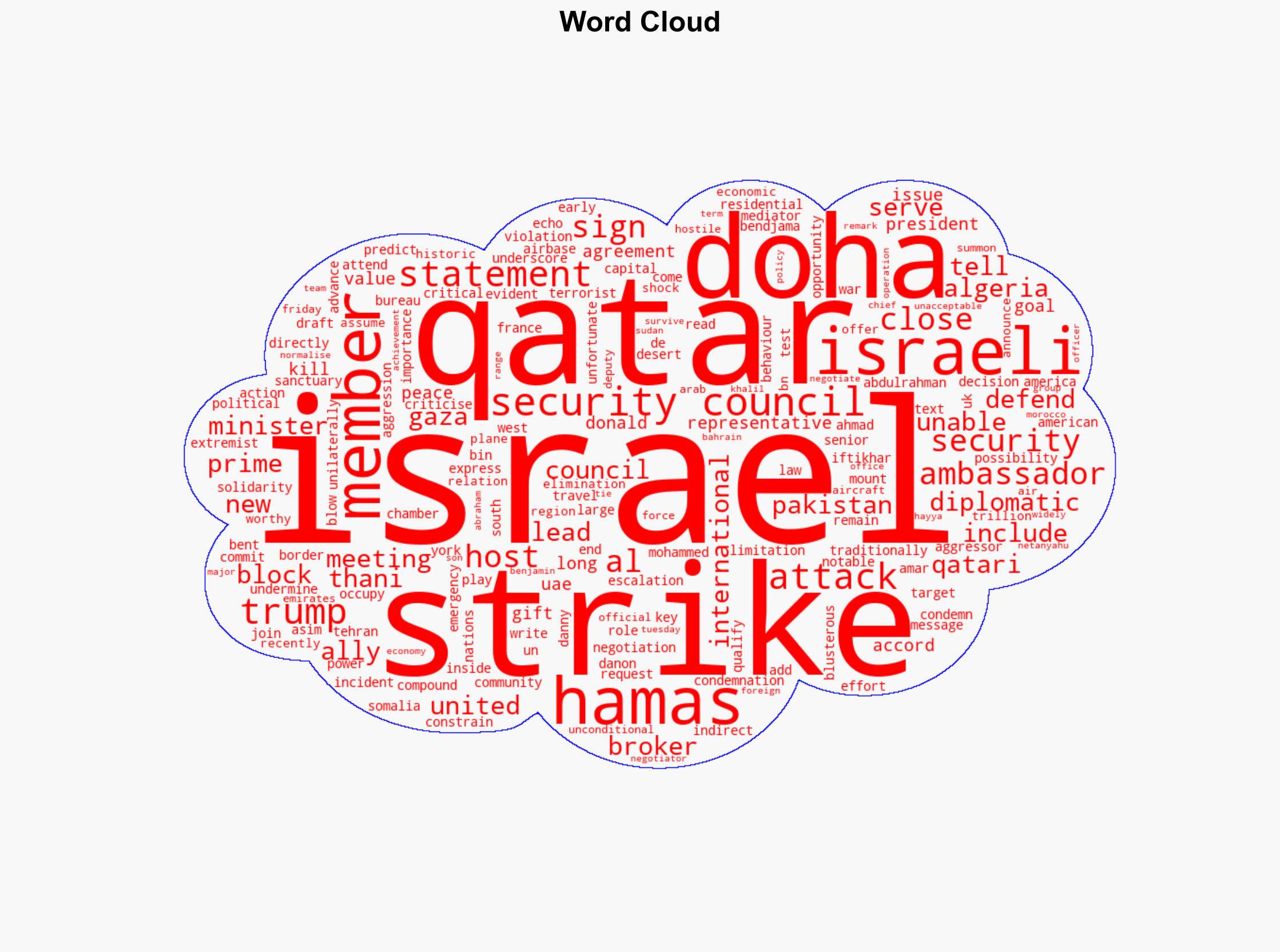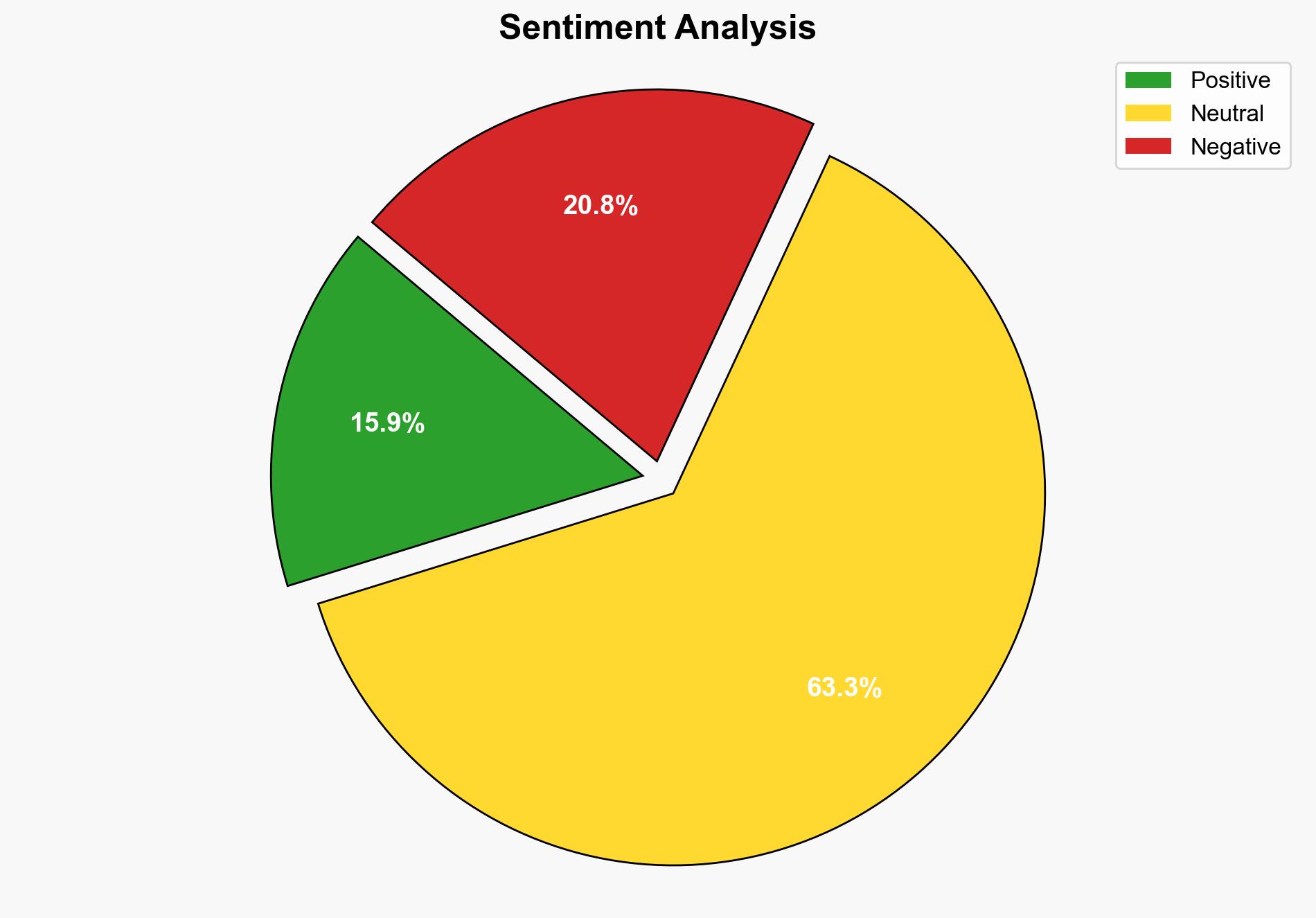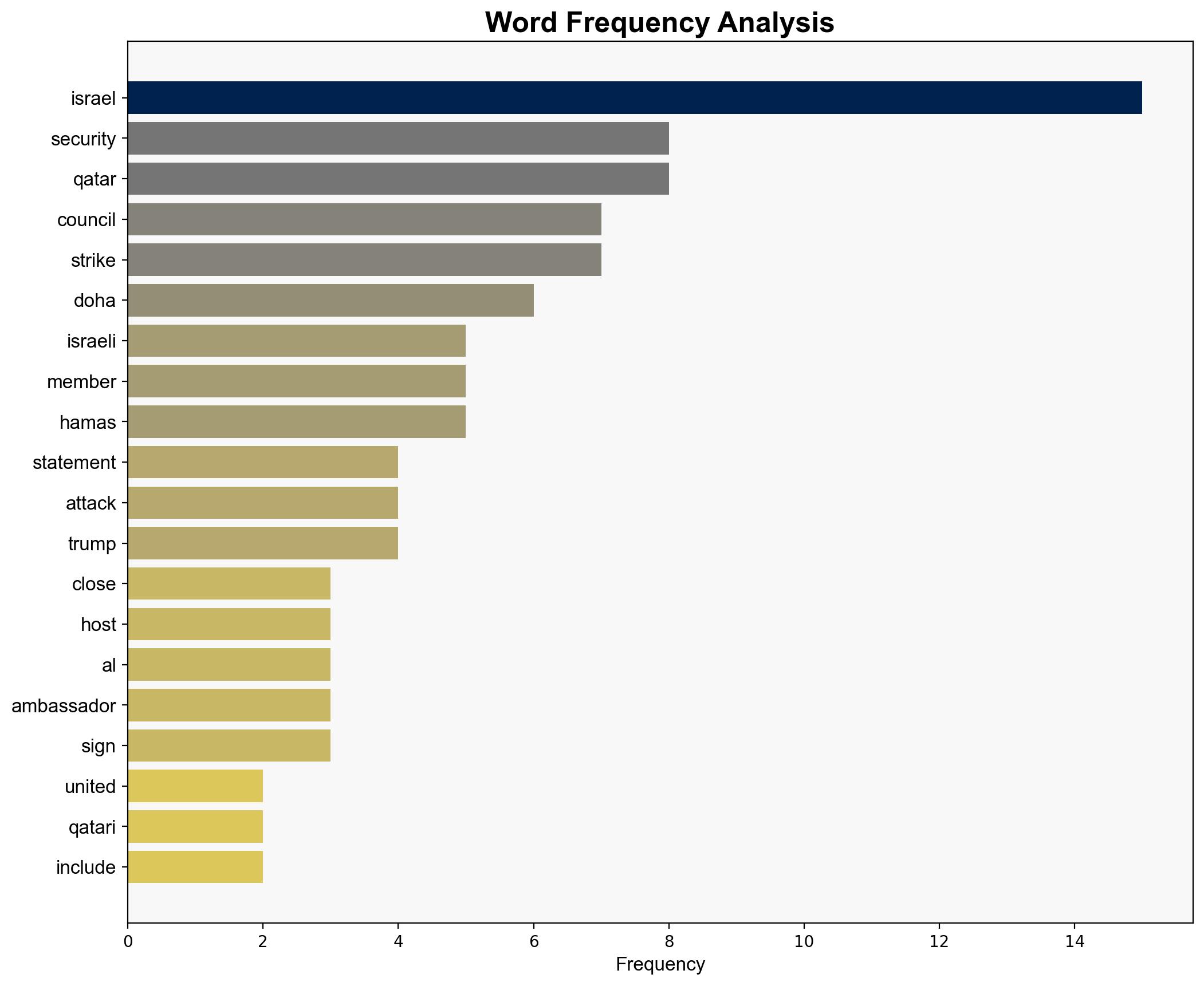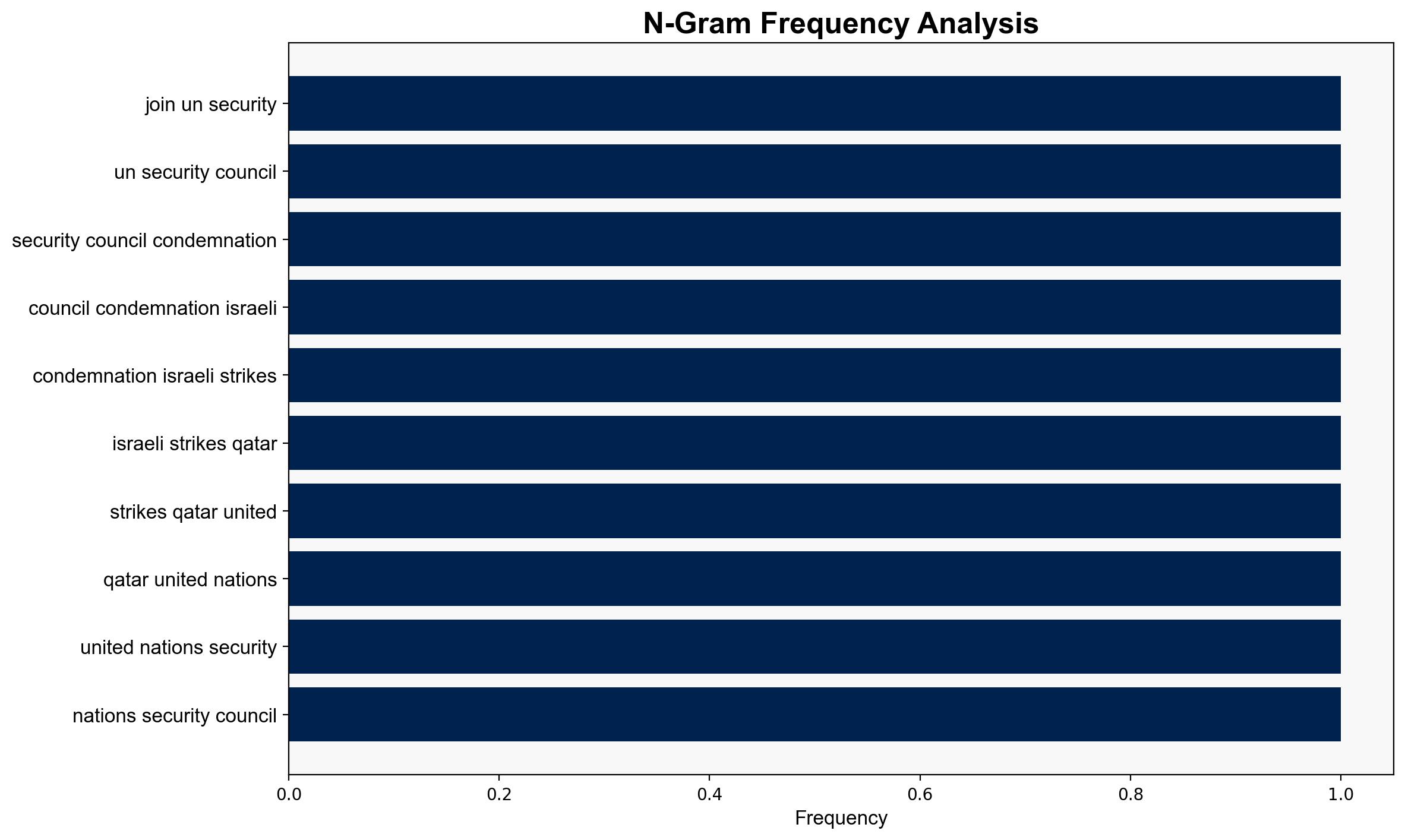US joins UN Security Council condemnation of Israeli strikes on Qatar – BBC News
Published on: 2025-09-12
Intelligence Report: US joins UN Security Council condemnation of Israeli strikes on Qatar – BBC News
1. BLUF (Bottom Line Up Front)
The most supported hypothesis is that the Israeli strikes on Qatar are a strategic move to disrupt Hamas operations, despite risking diplomatic tensions. The US joining the UN Security Council condemnation indicates a shift in diplomatic dynamics, potentially affecting US-Israel relations. Confidence level: Moderate. Recommended action: Monitor diplomatic engagements and prepare for potential shifts in regional alliances.
2. Competing Hypotheses
1. **Hypothesis A**: The Israeli strikes on Qatar are primarily aimed at disrupting Hamas operations and sending a strong message to its supporters, including Qatar, which hosts Hamas’s political bureau.
2. **Hypothesis B**: The strikes are a broader strategic maneuver by Israel to assert dominance in the region, leveraging the situation to test international responses and potentially realign regional power structures.
Using ACH 2.0, Hypothesis A is better supported due to the direct targeting of Hamas members and the historical context of Israel’s military actions against perceived threats. Hypothesis B lacks direct evidence but remains plausible given the geopolitical complexities.
3. Key Assumptions and Red Flags
– **Assumptions**: It is assumed that Israel’s primary motivation is counter-terrorism rather than regional dominance. Another assumption is that the US condemnation reflects a genuine policy shift rather than a tactical diplomatic move.
– **Red Flags**: The absence of detailed intelligence on the internal Israeli decision-making process. Potential bias in interpreting US actions as a significant policy shift without corroborative evidence.
– **Inconsistent Data**: The report lacks information on the specific intelligence that led to the strikes, raising questions about the proportionality and legality of the action.
4. Implications and Strategic Risks
The Israeli strikes could lead to increased regional tensions, potentially destabilizing existing alliances, such as those formed under the Abraham Accords. There is a risk of retaliatory actions by Hamas or its allies, which could escalate into broader conflict. Economically, disruptions could affect energy markets, given Qatar’s role as a major LNG exporter. Geopolitically, the US’s stance might influence other nations’ positions, impacting international diplomatic relations.
5. Recommendations and Outlook
- Engage in diplomatic dialogues with key regional players to de-escalate tensions and reaffirm commitments to peace processes.
- Enhance intelligence-sharing mechanisms to better understand the motivations and potential future actions of involved parties.
- Scenario Projections:
- **Best Case**: Diplomatic efforts lead to a de-escalation and renewed peace talks.
- **Worst Case**: Retaliatory actions by Hamas lead to a broader regional conflict.
- **Most Likely**: Continued diplomatic tensions with sporadic violence, but no major escalation.
6. Key Individuals and Entities
– Mohammed bin Abdulrahman Al Thani
– Danny Danon
– Asim Iftikhar Ahmad
– Amar Bendjama
– Benjamin Netanyahu
– Khalil al-Hayya
7. Thematic Tags
national security threats, cybersecurity, counter-terrorism, regional focus




